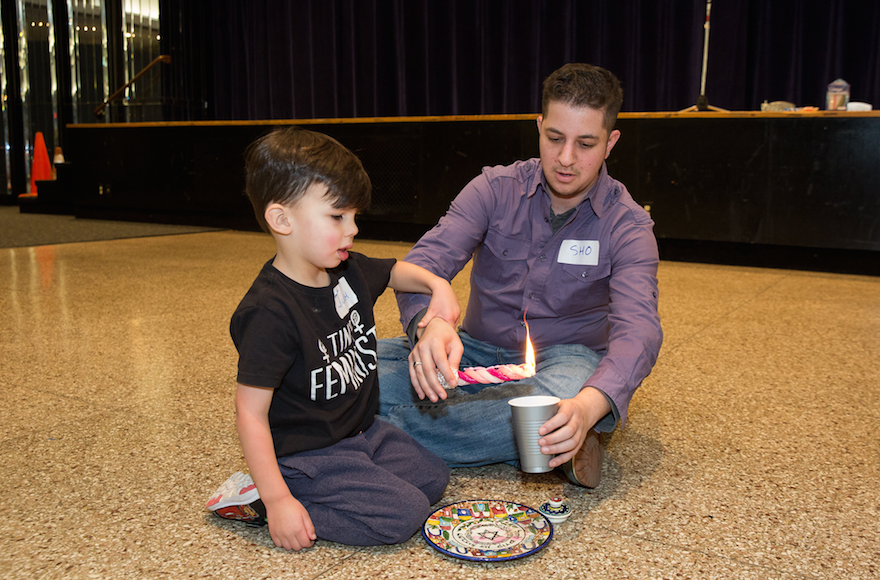(JTA) — Jewish young adults in the U.S. and Israel are, on average, just as religious as their elders, even though young people worldwide are largely less religious than their parents, a new study has found.
The study, released Wednesday by the Pew Research Center, also found that Israelis are far less religious than citizens of other Middle Eastern countries.
If the findings seem to contradict a perception of slipping religiosity among Jews in the U.S. and Israel, the study explains that is partly due to higher birthrates among Orthodox Jews than other denominations: “Orthodox Jews – who tend to have more children – make up a growing share of both Jewish populations, and thus a larger percentage of young Jewish adults,” it said.
The study’s main finding is that across continents, economies and religions, adults under 40 are less religious than those older than 40. Judging by four criteria — attending worship services, praying daily, affiliating with a religious group and considering religion “very important” — young citizens of only two or three countries scored higher than their elders. As a whole, the study found younger Christians and Muslims are less religious than older ones.
But in the United States and Israel, Jews under and over 40 scored roughly the same on the four criteria. There were not sufficient data to evaluate Jews from other countries.
When comparing it to the rest of the Middle East, Pew attributed Israel’s relatively low levels of religiosity to its higher per-capita GDP. The study found that the higher a country’s per-capita GDP, the lower its level of daily prayer. Israel is the only country in the Middle East and North Africa where fewer than 50 percent of citizens pray daily.
While nearly all Israelis affiliate with a religion, only 30 percent attend weekly services, 27 percent pray daily and 30 percent consider religion “very important” in their lives.

Help ensure Jewish news remains accessible to all. Your donation to the Jewish Telegraphic Agency powers the trusted journalism that has connected Jewish communities worldwide for more than 100 years. With your help, JTA can continue to deliver vital news and insights. Donate today.






